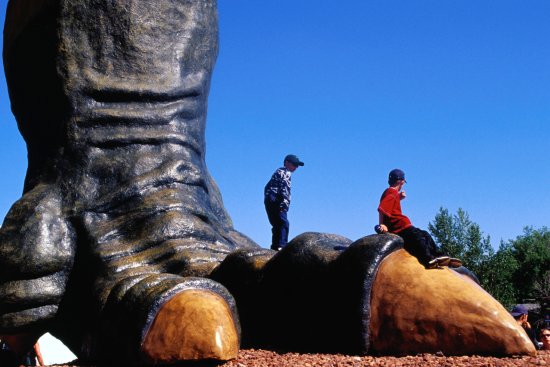
It's more than learning a list of local dos and don'ts
Summertime means travel. With kids, that can give a simple trip to the beach all the complexity of a year long arctic expedition.
But travel is also a great way for families to bond—and for kids to learn about the world, and themselves.
So how can parents start good conversations with kids to help them get the most out of travel?
Sign up here for TIME for Parents, a newsletter of only interesting parenting stories.
At any age, it’s important to be a “good traveler,” says Tamara Gruber, a family travel writer who has crossed continents with her own family, and writes about those travels at we3travel.com. “As you’re researching a place, it’s good to know your cultural norms, which sparks a bigger conversation of different cultures, and understanding that not everything is done the way that you are accustomed to.”
But being a good traveler is more than just learning the lists of local “dos” and “don’ts,” she says. “It’s about teaching kids to be more resilient, and more open to new experiences.” Lessons, she says, that they can apply “throughout life.”
At elementary school age, Gruber says, parents can encourage kids as travelers by starting local: “local museums, local historic sites, local parks, hiking trails, wherever you live.” This gives kids a sense of “how beautiful the world is, and what fun things there are to do.” It’s also a good age, according to Gruber, to start talk with kids about places they may someday see. If parents have had conversations with kids about the Grand Canyon, the Eiffel Tower, or even the Taj Mahal, “it’s so much more meaningful when they see it in person.”
Middle school kids, says Gruber, can start to contribute to planning trips themselves. “They have a little bit more knowledge of the world and studied different places in school.” So it’s a great time, Gruber says, to get them “involved with the process, looking through the travel guides,” and asking what places they’re interested in, and what they’d like to do there.
High school kids probably have some memories of travel under their belt, Gruber says. So parents can look back with them over the places they’ve been—just remembering the good times together, or thinking more deeply about what kids learned by being there. And as high school kids get ready to step out into adulthood, parents can also encourage them to think about where they might like to travel one day—all on their own.